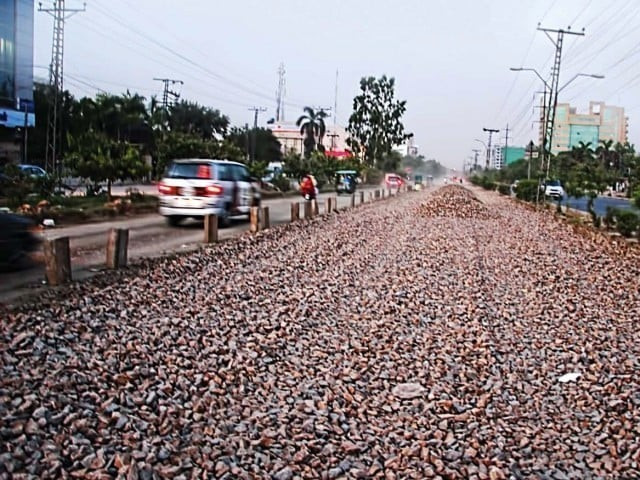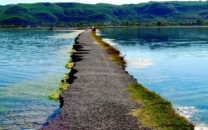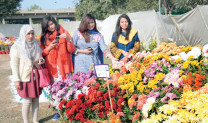Progress over preservation: Supreme Court allows Canal Road widening
Court directs officials to ensure ‘minimum damage’ to green belts in adding lanes.

The Supreme Court has given the Punjab government permission to widen Canal Bank Road, rejecting environmental concerns about the project.
“The project is environmentally viable,” said Justices Mian Saqib Nisar and Tasadduq Hussain Jillani in their verdict, announced in Islamabad on Thursday. They said the project would have an affect on the environment, but its benefits to commuters outweighed the potential harm.
The Punjab government plans to add an extra lane on each side of the Canal, where currently the 14-kilometre road is flanked by green belts from Dharampura to Thokar Niaz Beg.
The Supreme Court had stayed the project in 2006 after conservation groups like the Lahore Bachao Tehreek objected that it would result in great environmental damage through the loss of thousands of trees in those green belts.
The judges said in their decision that “only 1,800 trees would be cut”, as opposed to “the apprehension that it would lead to the cutting of 33,000 trees”; and that “60% of the trees which are likely to be affected are eucalyptus, which are even otherwise not beneficial to the soil and environment.”
The court was acting on recommendations made by a mediation committee led by Dr Pervez Hassan that was set up to resolve the environmentalists’ concerns about the project. Members of the Lahore Bachao Tehreek had voiced disapproval of the mediation committee’s recommendations for widening of some sections of the road, but the court ruled that these were not valid since the committee had been set up with their consent.
Two passages in the verdict most clearly indicated the judges’ thinking. “The court ... is conscious of the historic and emotional appeal of the Canal, which was built initially by the last Muslim ruling dynasty, the Mughals, and extended in 1861 by the British. It is indeed an environmental asset,” it said.
But it added: “This, however, is the flip side of the human saga. It has a positive dimension too. If humans had shunned reason ... or had taken their love of nature too far, they would still have been living in caves, eating insects and raw meat and mating like animals.”
The judges ruled that the Punjab government must follow the committee’s recommendations in executing the project. These included rebuilding the underpasses that are on the wrong side of the road, the re-engineering of some junctions and building or improving service roads.
The court directed the government to declare the Canal and the green belt from Jallo Park to Thokar Niaz Beg a public trust. “It shall be treated as a heritage urban park forthwith and declared so by an act to be passed by the assembly,” reads the verdict.
The judges also directed the provincial government to ensure that “minimum damage” is caused to the green belts and that tree cut down is replaced by four trees 6-7 feet tall. It also directed officials to take “elaborate measures” to ensure that the Canal is not polluted, such as making the throwing of garbage in the Canal a penal offence.
Published in The Express Tribune, September 16th, 2011.


















COMMENTS
Comments are moderated and generally will be posted if they are on-topic and not abusive.
For more information, please see our Comments FAQ